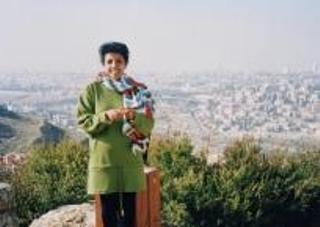Amnesty urges immediate release to detained Eritrean politicians, ministers
By Tesfa-Alem Tekle
September 16, 2011 (ADDIS ABABA) – Human rights group, Amnesty International, on Friday urged Eritrea to “immediately” and “unconditionally” release 11 prominent politicians, including three former cabinet ministers held incommunicado without charge for a decade.

Among the detained are senior military leaders, veteran fighters who fought during the 30-year long war of independence with Ethiopia and three former cabinet ministers namely vice-president and foreign minister Mahmoud Ahmed Sheriffo, Haile Woldetensae, and Petros Solomon, both of whom are also former foreign ministers.
“This anniversary is a harrowing reminder of President Afewerki’s complete disregard for the essential right of freedom of expression. For more than a decade, he has brutally suppressed any legitimate criticism of his government,” Amnesty International’s Deputy Director for Africa, Michelle Kagari said.
Eritrean law forbids detention of a prisoner without charge for more than one month. However Amnesty said the Eritrean activists have been detained in secret locations for the last ten years and the country’s authorities have refused to confirm their whereabouts or their health status to their families.
“The ten-year in-communicado detention of these activists violates numerous rights protected under Eritrean and international law” said Michelle Kagari.
According to international human rights organisations, prisoners in Eritrea are subjected to extreme temperatures whilst being held under shipping containers in the desert which serve as jails. There are also many other secret underground cells where prisoners face inhuman torture and ill treatment.
One among common torture technique according to Amnesty is known as “the helicopter style”, where a prisoner’s hands and feet are tied all together behind the back, with face pointing down. Often prisoners are left out in the hot sun like this for hours.
As a result of extreme torture, many detainees are reported to have become physical handicapped and others end up with a permanent mental disorder.
“Holding them (the 11 prominent politicians) incommunicado increases the risk that they will be tortured or ill-treated while in detention, including by denying them adequate medical care” Amnesty said.
In recent years there have been unconfirmed reports that some of the detained activists have died as prisoners are also denied of medical treatment.
“Several members of the group were already suffering from medical conditions when they were arrested ten years ago” the human rights group said.
“There are reports that nine of the eleven have died in detention” but so far Eritrea has not responded to these allegations.
Since their arrest ten years ago, the rights group has been calling for their immediate and unconditional release of the detainees who they describe as prisoners of conscience arrested simply because of their peaceful criticisms of the government.
“A decade later we continue to demand that the G15 detainees be released immediately. Their incommunicado, indefinite detention must end. Their families must be told of their whereabouts, and they must be given access to lawyers as well as any medical treatment they need,” said Kagari.
Eritrea has no functioning opposition political parties. President Issaias Afewerki’s People’s Front for Democracy and Justice is the only legal party with complete control over the state.
“Thousands of political prisoners are languishing in dire conditions, many in secret detention, across Eritrea”, Kagari said.
“We call on the Eritrean government to issue an amnesty for all political prisoners and to respect their right to freedom of expression.”
Ethiopia’s former Northern Province, Eritrea, fought a 30-year war for independence from Ethiopia that ended in 1991.
The Red Sea nation officially gained independence in 1993 however five years later engaged in a 1998-2000 border war with Ethiopia and with their border dispute yet unresolved the two neighbors remain in a no-war no-peace situation.
Ethiopia accuses Eritrea of supporting al Qaeda linked Somali islamists and destabilising the region.
(ST)
